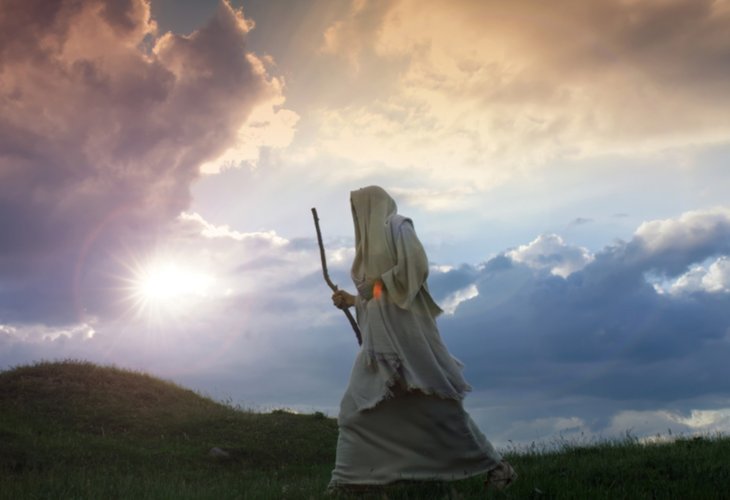Torah Personalities
The Prophet of Avila: The Mystical and Controversial Legacy of Abraham Abulafia
Visionary, wanderer, and kabbalist, Abraham Abulafia stirred the Jewish world of medieval Spain and Italy, leaving behind both a mystical revolution and fierce opposition
 (Illustration photo: shutterstock)
(Illustration photo: shutterstock)A Child of Spanish Torah: Early Life and Learning
Abraham Abulafia was born in the year 1240 in Zaragoza, a major center of Jewish scholarship in medieval Spain. He was the son of Rabbi Shmuel Abulafia, and he studied Torah with his father for eighteen years. After his father's death, Abraham turned to deeper philosophical and mystical pursuits, especially the study of kabbalah (mysticism).
Driven by spiritual hunger and messianic yearnings, he began to search for the legendary Sambatyon River, which, according to Jewish tradition, marked the border of the Ten Lost Tribes. His travels took him through various cities until he eventually settled in Catalonia, in the city of Barcelona. There, he became a student of Rabbi Baruch Togarmi, a renowned kabbalist and author of Mafteach HaKabbalah ("The Key to Kabbalah").
Prophetic Kabbalah and Grand Visions
Abulafia’s unique path led him to develop a system he called Kabbalah Nevu’it ("prophetic kabbalah"), a mystical framework that combined meditation, letter permutations, numerology (gematria), acronyms (notarikon), and Divine visions. At the age of thirty, while living in the city of Ávila, he claimed to have experienced a prophetic vision commanding him to visit the pope and teach him the truths of Torah.
He soon became known as “The Prophet of Avila” and began producing books prolifically, reportedly authoring over fifty mystical works filled with esoteric interpretations and complex symbolic calculations. His influence began to spread across Spain and Italy, and he attracted followers wherever he traveled.
Eventually, Abulafia resolved to act on his vision and sought an audience with Pope Nicholas III. However, the pope refused to meet him, and soon after, he died. Abulafia saw this as a Divine sign validating his prophetic mission, and his fame continued to grow.
A Storm of Controversy: The Rashba's Opposition
The prominence of Abulafia’s teachings, especially among students drawn to his mystical charisma, alarmed the leading halachic (Jewish legal) authority of the time: Rabbi Shlomo ben Aderet, known as the Rashba. Concerned about the growing influence of Abulafia’s mystical claims and self-proclaimed prophetic status, the Rashba investigated his teachings.
In a letter to his students, the Rashba denounced Abulafia as delusional and misleading, accusing him of mixing truth with falsehood and declaring that he aspired to be the Messiah. The Rashba called him a madman whose writings should be rejected, and he led a campaign to prevent the study and dissemination of Abulafia’s works. For six years, until Abulafia’s death, the Rashba actively opposed him.
A Mixed Legacy: Rejected and Remembered
Despite the Rashba’s fierce opposition, parts of Abulafia’s mystical system endured. Later kabbalists, including Rabbi Moshe Cordovero, studied selections from his writings.
Abulafia’s legacy is one of paradox. He was hailed by some as a mystical genius and dismissed by others as a false prophet. Yet his bold vision, prolific output, and influence on the trajectory of Jewish mysticism ensure that his name remains woven into the spiritual history of the Jewish people.

